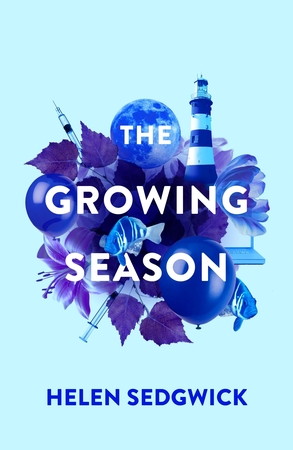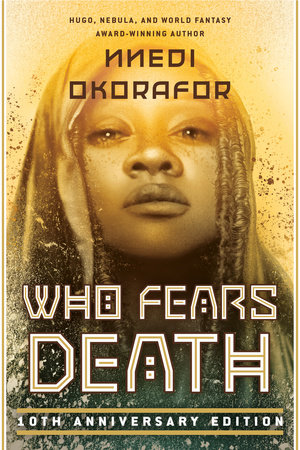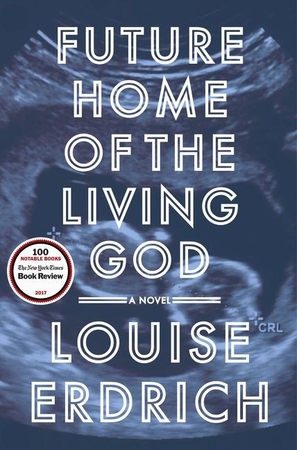Electric Lit relies on contributions from our readers to help make literature more exciting, relevant, and inclusive. Please support our work by becoming a member today, or making a one-time donation here.
.
I struggled to get pregnant for three years. During that period, I experienced miscarriages and surgery, and I injected my abdomen with more hormones than I could count. Finally, I was one of the lucky ones, and (albeit after an extremely traumatic labor) I gave birth to a healthy baby boy. However, the three-year battle to conceive had changed me. I had become wary of motherhood, viewing it as both fragile and destructive. Fragile, because it seemed to get broken so easily. Destructive, because it kept breaking me.
Having been through my own personal hell, I sought out books about motherhood that told stories of injustice and misfortune. Initially, I viewed my reading list as distinctly dystopian—I read books set in near-future scenarios involving climate crises, medical emergencies, technological dilemmas, and political upheavals. There was catharsis in seeing mothers and their children fight against far more extreme forces than I had done.
I wrote a novel too, about a woman who is torn between starting a family on Earth and leaving everything behind to become one of the first colonists on Mars. My book Bright and Dangerous Objects is a metaphor, I told myself, for my ambivalence about motherhood. Earth represents upheaval, sacrifice, fear; Mars stands for independence, ambition, escape.
Furthermore, in the two years since my son was born, my world has shifted. I have come to understand that I am in the midst of a climate emergency. Then, in the month that I conceived my second child—a daughter—a virus outbreak in China led to a pandemic that has claimed millions of lives across the globe.
The novel that I wrote no longer feels like a metaphor. Earth is a place of upheaval and sacrifice. Bringing up the next generation on this planet does fill me with fear. And the dystopian stories that I have been reading have started to feel like essential and plausible reads. So, as the apocalypse looms over us on a daily basis, what can we learn about contemporary motherhood from these now not-so-far-fetched narratives of disaster?
The End We Start From by Megan Hunter
London is underwater. And the floods are spreading. After giving birth, a woman is forced to flee north with her husband, R, and her baby, Z, in search of safety. Adrift in a place she barely recognizes, she becomes separated from her partner and bonds with Z, surviving in the face of disaster as well as she can.
Written in slivers, reminiscent of Jenny Offill’s excellent Dept. of Speculation and Rivka Galchen’s smart Little Labours, we feel the narrator’s fragmented state of mind as she navigates new motherhood and her increasingly alien environment. As the narrator’s world is ripped apart and reconfigured, we are left marveling at her hope and strength in adversity. The author’s descriptions of breastfeeding, sleep difficulties, and the baby reaching new milestones all feel authentic and familiar, but recontextualized like this makes for a fascinating read.
Sealed by Naomi Booth
An epidemic is infecting Sydney. Known as cutis, it causes people’s skin to seal up until they choke to death. Heavily pregnant Alice and her boyfriend, Pete, escape to a remote house in the Blue Mountains to start their family. But are Alice’s concerns about the epidemic founded? And is the countryside more inhospitable than the city?
Booth’s gripping novel explores the fears so many of us experience in pregnancy—of the strange being occupying our insides, the dangers the outside world poses to it, and the precarious barrier of skin separating the two. Exploring issues of trust and ecological disaster in a way that feels evocative of The Glad Shout by Alice Robinson, Booth takes her book to a thrilling and gory conclusion that is not the faint-hearted.
The Growing Season by Helen Sedgwick
Human ectogenesis—the ability to grow babies in an artificial uterus outside of the body—is now possible. The “pouch” is provided by a company called FullLife, who have mysteriously begun providing a natural birth option to their clients. Piotr, a journalist, and Eva, a campaigner, investigate the organization while facing up to their own troubled pasts.
The technology in this novel is not as futuristic as it sounds. We have successfully grown animal fetuses in artificial wombs, and scientists predict we may be able to support humans in this way within a decade. There are medical, egalitarian, and practical benefits, but also legal, financial, evolutionary, and ethical risks. Without judging, Sedgwick presents the arguments surrounding this delicate topic by interweaving her characters’ storylines to form an engaging psychological drama in the vein of Caeli Wolfson Widger’s Mother of Invention.
Who Fears Death by Nnedi Okorafor
In a post-nuclear-holocaust Africa, two ethnic groups in Sudan are engaged in conflict. The light-skinned Nuru are guided by a religious text instructing them to enslave the dark-skinned Okeke people. Rebellion is met with slaughter. Onyesonwu is Ewu—neither light nor dark—because she is the child of an Okeke woman who was raped by a Nuru man. Furious at what happened to her mother, Onye embarks on a magic-fuelled quest for justice.
Dealing fearlessly with subjects including racism, weaponized rape, genocide, and female genital mutilation, Okorafor creates a frightening but beautiful read. Onyesonwu’s mother might have had little choice over her terrible fate, but her child’s fierce determination to make amends for this—and for all who suffer—is engrossing and extremely moving.
Gold Fame Citrus by Claire Vaye Watkins
Severe drought has rendered California practically inhabitable. Young couple Luz and Ray attempt to stay, squatting in an abandoned celebrity mansion. But when they come across a neglected toddler, who they nickname Ig, parenting her gives them new purpose. They finally leave California, but as a battle between religion and rationality ensues, Luz must decide on the future she wants for herself and the child.
Written in a blend of styles that include choruses, hallucinations, and documentary reportage, this is both a cerebral and nail-biting book that keeps the reader guessing. Involving a journey that moves from the familiar to the unfamiliar, the civilized to the deserted, in a way that echoes Samantha Hunt’s enchanting Mr. Splitfoot, Vaye Watkins asks us how we cope when our environments are no longer made for us. Perhaps the tiny concerns—mothering a child, for example—can end up being the catalysts that propel us to take on the colossal ones. And there’s no saying that we will always make the right decision.
Severance by Ling Ma
New York suffers an outbreak of Shen Fever, a disease which causes sufferers to endlessly re-enact mundane daily routines without consciousness. Candace—a millennial working in an office block in Manhattan—is so settled into her life’s routine that even when things get truly awful, she chooses to stay. Then, when escape is her only option, she must work with a team of survivors to start a new society in an abandoned shopping mall. But Candace is harboring a secret.
The depiction of motherhood in this book is slow-burning and complex. Candace’s absent mother looms heavy in the text, and Candace’s relationship to parenthood gives the novel a drive and a darkness that makes it an uncomfortable read at times. Uncomfortable, but unforgettable.
Future Home of the Living God by Louise Erdrich
Evolution is going backwards; women are giving birth to primitive species of humans. Four-months-pregnant Cedar is afraid. Trying to understand her baby’s origins and its chances of survival, she visits her birth mother, an Ojibwe woman, and speaks to her adoptive parents, a pair of Minneapolis liberals. But the world around her is becoming more and more unstable. As oppressive forces imprison pregnant women in mysterious medical facilities, can Cedar keep her baby safe? And if her baby turns out to belong to a primitive species—what then?
The novel is written addressed to Cedar’s unborn child—a child who may never have the capacity to understand language or appreciate modern culture. With echoes of PD James’s The Children of Men as well as Margaret Atwood’s seminal work The Handmaid’s Tale, and exploring similar territory to Diane Cook’s Booker Prize-longlisted novel The New Wilderness, Erdrich moves between subjects including religion, Native American history, mental health, and science. The story is tense, moving, and strangely relevant to our current reality. In a world so full of progress, how come it so often feels like society is moving backwards? What can we, as mothers, do to help our children look forward to—and create—a brighter, more evolved, future?








